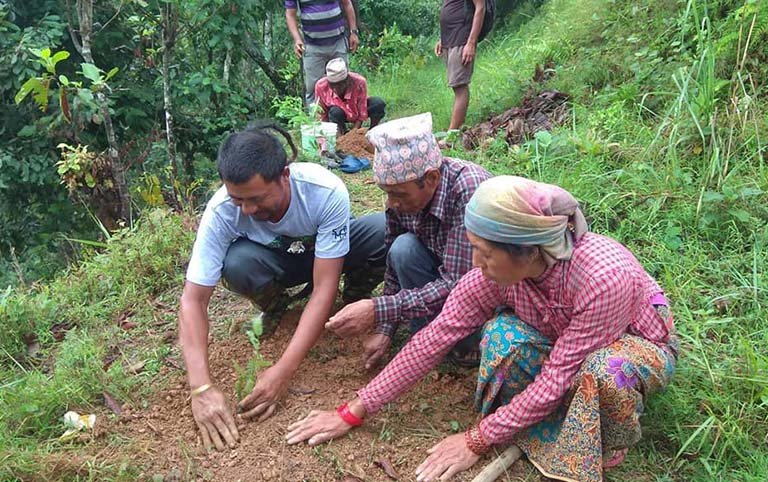The project is being carried out to understand the effective measure to deter the primates in the area of severe primate conflicts. During the first phase of the project, the team visited several sites along the Seti corridor, built rapport with relevant project stakeholders at potential sites of project implementation through field visits in several areas of primate conflicts, interacted with the local communities and finally selected the sites to conduct trainings, awareness programs and set the experimental plots for the primate deteration method execution. During this phase, the team conducted review of literatures- scientific articles, project reports, newspapers and other relevant materials and communication with key personnel to doument current senario of HPC at Seti corridor.
The main objective of the second phase of the study was to evaluate the selected site identified by first phase of the project i.e. Suklagandaki Municipality- 12, Tanahu, evaluate the the responses of the local people on the effectiveness of the project activities and their willingness and support. This phase also included SWOT analysis of the site in order to evaluate the strength, weakness, opportunities and challenges that facilitates in effective execution of the capacity building trainings, awareness programs and experiments, and thus will support in overall monitoring and evaluation of the project throughout the project period. The venues were fixed for the training programs, nursery establishment, plantations including the confirmation of resource persons, and successful testing of the major equipments to be used for the field experiments.
The project initiated “Plantation with Purpose” at Suklagandaki Municipality-12 on 26 June 2019 for two weeks. SMCRF distributed 5349 saplings to the locals in Pyuridovan, Jaspur, Mulabari, Lamagaun and adjacent areas. The saplings included fruit trees of Amalaa (Phyllanthus emblica), Jaamun (Syzygium cumini), Sipligaan (Crateva unilocularis), Jackfruit (Artocarpus heterophyllus), Guava (Psidium guajava), lemon (Citrus aurantifolia), tree saplings of Tejpaat (Cinnamomum tamala) and Broom grass (Thysanolaena maxima). The plantation of fruit trees was done inside the forests, forest edges and barren lands with the main purpose of making these fruit trees available for the wild animals especially the monkeys in the forests and minimize their crop-raiding activities. The Broom grass plants were planted along the farm edges as bio fence, on landslide-prone cliffs and barren lands.
The project is executed with financial support from WWF/USAID/Hariyo Ban Program, in coordination with Division Forest Office, Tanahun, support from Suklagandaki Municipality, Ward-12 and local stkeholders.

